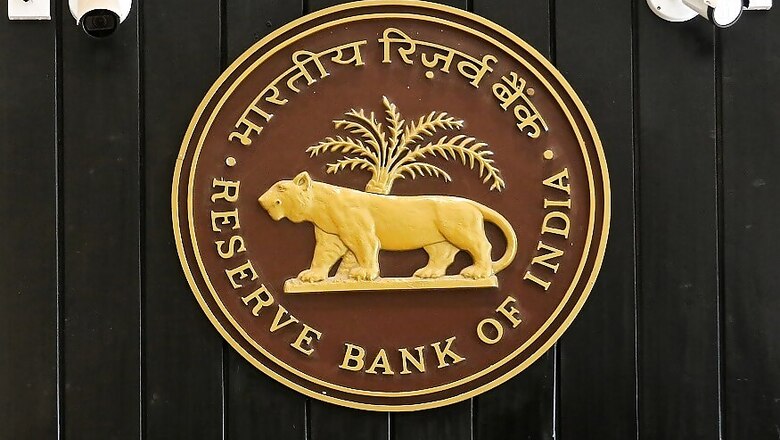
views
The Reserve Bank on Saturday came up with a modified oversight framework for financial market infrastructure and retail payment systems with a view to ensure safety and stability of payment structure.
"This document, by enhancing supervisory transparency and disclosure, would enable better regulatory compliance by payment systems operators, and enhance customer awareness, eventually contributing to the safety and stability of our payment systems," the RBI said while releasing version 2.0 of Oversight for Financial Market Infrastructure and Retail Payment Systems.
The RBI, as per the document, will carry out the oversight activity through monitoring existing and planned systems, assessment of the FMIs and RPSs against the oversight objectives, and inducing change for improvements, where necessary.
"It is important that FMIs, as well as retail payment systems, are resilient to disruption, including financial and operational shocks, so that they continue to provide critical service to the economy and support wider financial stability and economic development," the document said.
The central bank has an important role to play in ensuring smooth functioning of payments systems, it added.
The FMI generally refers to systemically important payment systems (SIPS), Central Securities Depositories (CSDs), Securities Settlement Systems (SSSs), Central Counter Parties (CCPs), and Trade Repositories (TRs) that facilitate the clearing, settlement and recording of financial transactions.
RPS refers to transactions effected through mobile phones, internet, ATMs, PoS networks and with contactless technology (card payments and tokenisation), electronic billing and use of various systems and platforms for making instant payments.
The Reserve Bank of India had adopted the Principles for Financial Market Infrastructures (PFMI) for supervising and assessing the FMIs regulated by it, and had in June 2013 prepared a document titled "Regulation and Supervision of FMIs regulated by RBI".
The scope of the document was limited to oversight activities and tools used for supervision of the Financial Market Infrastructure (FMIs) prevailing then.
Over the following years, the supervisory rigour for FMIs 'both onsite and offsite' has increased.
Additionally, RPSs have assumed importance, given their acceptance, convenience and availability of multiple payment options.
National Payments Corporation of India (NPCI), the umbrella organisation for RPSs in the country, has emerged as a System Wide Important Payment System (SWIPS) because of the significant volume of transactions processed in the payment systems operated by it.
Reserve Bank undertakes onsite and/or offsite supervision of RPSs like PPI issuers, ATM networks, TReDS platforms, MTSS operators, card networks, etc.
The Oversight Framework for Financial Market Infrastructures (FMIs) and Retail Payment Systems (RPSs) has been updated in line with the commitment made in the Reserve Bank's Payment and Settlement Systems Vision 2019-2021, the central bank said.
It incorporated the supervisory framework for the payment system entities as well as the supervisory considerations that have arisen since the time of the previous document.
It details the oversight objectives and supervisory processes of the Reserve Bank as well as the assessment methodology of FMIs and SWIPS under PFMIs.















Comments
0 comment